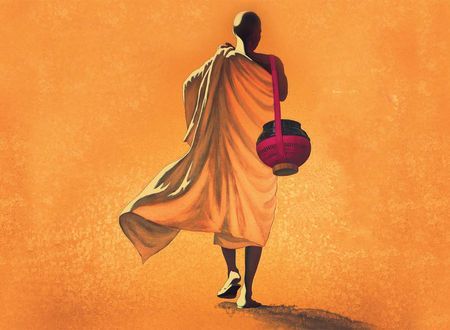In nature, deception matters for survival. Bacteria and viruses enter our bodies by tricking the immune system, effectively “lying” to the host immune cells. Chameleons change their colors and blend into their surroundings to deceive predators, while male spiders mislead their female mates by gift-wrapping inedible leftovers with silk. Numerous other species of plants and animals use disguises and mimicry to fool predators and prey. Humans have little need for such physical deception since we have our lies.
Lying is a normal part of cognitive development, and children as young as three years of age experiment with lies. It may have an evolutionary basis, as “small” lies may help humans form relationships. We learn from a young age that lying has consequences. Lie in a court of law, and we commit perjury; lie at the workplace, we risk job loss; lie to our spouse or loved ones, we ruin relationships, and so on. Yet the temptation to lie is great because sticking to the truth no matter what is one of life’s biggest challenges.
Although speaking the truth is the most straightforward path to take, we find it inconvenient and time-consuming to explain ourselves. Truth depends on transparency and demands openness. Often the truth is not apparent. Facts may be hard to come by, lying buried somewhere like precious diamonds hidden underground. Truth is singular, and we cannot alter it to suit the time, place, or situation, and it can be uncomfortable and hard to digest. Therefore, we employ little white lies to short-circuit the process to get us what we want. According to one study, the most common lies people use to get out of work commitments include feeling ill, family emergencies, and doctor’s appointments. A third of respondents in this study even lied about a death in the family to get out of work.
Despite the challenges, following the path of truth has its advantages. Mark Twain said, “If you tell the truth, you don’t have to remember anything.” Lies are burdens we carry wherever we go. For some, the guilt becomes unbearable, forcing them to stop weaving their web of lies. Others may be able to push that guilt into the subconscious, a guiltless pretense that their lies don’t exist. Lying leads to the fear of getting caught, which may manifest as distrusting others. But that reflects what we hide from ourselves—the truth we’ve turned into lies. Speaking the truth frees the mind and leads to decreased stress levels. In the long run, honesty leads to better relationships, health, and happiness.
“All truths are easy to understand once they are discovered. The point is to discover them.” ~ Galileo Galilei.
There are two ways to walk on the path of truth. Either be honest with the world or be honest with yourself. But that commitment to the truth must be total. A little lie here and there, however innocent or harmless, and we are off the path. The path of truth can sometimes feel like we are walking along a narrow ridge line with steep drop-offs on either side. When the urge to lie arises, we must slow down and be as cautious as we would if walking on a slippery mountain ridge.
When we are honest with the world, we stop deceiving ourselves. Similarly, it is hard to be untruthful to others when we are true to ourselves. Just as a blade has two sides, which both meet at one cutting edge, the inner or outer paths of truth meet. This merger happens once there are no internal or external conflicts related to any falsehoods we think or utter, and it liberates us from the chains of the mind.
While truths are fact-based and lies are imaginary, a peculiar mix of half-truths and half-lies is unique to politics. Politicians have mastered the art of verbal alchemy. They take shreds of reality and make it unpalatable by gift-wrapping it with sweet-sounding lies, much like the empty nuptial gifts male spiders give females.
When a significant number of people find what a politician says as either completely outlandish or highly plausible, that politician has succeeded in embedding themselves in our consciousness. There is a continual struggle between providing hope to people and the Machiavellian tendency to instill fear. Messages of hope help bring people together, but hope does not stir emotions as profoundly as fear. By creating and spreading fear consciousness, politicians employ fear in two ways. One, by binding people into groups by appealing to the primal instinct of safety in numbers; and two, by sowing divisions between groups that succumb to the fear and those that stand in opposition.
Social media makes it easy to weaponize fear to drive the narrative. According to a study, once an idea is injected into a large enough network of people, usually 50 people or more, and pops up repeatedly in peoples’ conversations, it becomes the prevailing idea. Old-fashioned door-to-door campaigns are inefficient. For politicians, they are little more than photo-ops these days. The actual campaigning happens behind the scenes through media channels, and unknowingly we inoculate ourselves with narratives that did not originate within us.
Reading about the deception in the animal kingdom between predator and prey is fascinating. But once we deceive others with our lies, we become the predators, and when we succumb to the lies of others, we become the prey. By following the path of truth, we become human(e).









Comments & Discussion
4 COMMENTS
Please login to read members' comments and participate in the discussion.